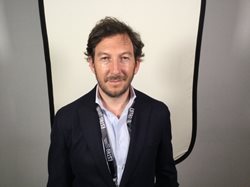The GEC-ESTRO Urology (URO-GEC) group is a dedicated working group within the Groupe Européen de Curiethérapie (GEC) and ESTRO that is focused on the advancement of brachytherapy for urological cancer.
URO-GEC now has a strong membership base. Following the last two group meetings in Glasgow, UK, and Hamburg, Germany, the number of active members has increased to 30, with most European countries represented.
In addition, URO-GEC maintains a close collaboration with the brachytherapy physics quality assurance group. Although the tradition of joint meetings has been paused, there is a renewed effort to resume these in the future to strengthen the relationship and foster deeper collaboration between the groups.
The following document highlights the activities currently underway and recent achievements of the URO-GEC group.
1. Project Encompass
This intercontinental database is intended to enhance understanding and management of prostate cancer that is treated with high-dose-rate (HDR) brachytherapy under the leadership of Pierre Blanchard (France) and Joel Poder (Australia). Despite progress, challenges remain in implementing data transfer agreements (DTAs) among participating centres. These aspects are being addressed at the moment and a list of interested group members is being updated. It is a priority to expand participation.
2. Salvage Brachytherapy Database
The multi-centre database for salvage brachytherapy, which is coordinated by Piotr Wojcieszek (Poland), is nearly ready for publication. The next steps involve merging retrospective databases from Spain (Patricia Willisch), Poland, and Germany to increase the patient pool and publication impact. This initiative is aimed at creating a robust, comprehensive dataset to inform future clinical practice and research.
3. Reirradiation – Special Issue in The Green Journal
The group plans to contribute a review on reirradiation treatments that use brachytherapy for prostate cancer to a forthcoming special issue of the four ESTRO journals. This review will build upon recent publications, including a 2024 study in Strahlentherapie und Onkologie, and provide updated insights into this challenging treatment area.
4. Collaborative Study on Reirradiation in Prostate Cancer
Led by Artur Chyrek (Poland), this project will explore cases that involve prostatectomy, salvage radiotherapy, and subsequent salvage brachytherapy. A dedicated database and protocol will facilitate data-sharing and analysis, and therefore will address a critical gap in published literature on this complex clinical scenario.
5. HDR Monotherapy Consortium
Based on a survey that will assess experience and interest in HDR monotherapy, the group will establish a consortium to generate prospective evidence. This initiative, led by Iosif Strouthos (Cyprus), will focus on standardising treatments and defining outcome measures for rigorous evaluation. A protocol is currently in development.
6. URO-GEC Website and Digital Outreach
Hathal Haddad (Germany) updated members on the website’s progress and proposed the creation of multilingual podcasts, webcasts, and videos on urological brachytherapy. These materials will be hosted online and promoted via social media, including possibly through an X profile. The group will consult with the GEC-ESTRO committee to ensure alignment with broader communication strategies.
7. Delphi Consensus on Brachytherapy for Penile Cancer
Piotr Lelek (Poland) proposed a Delphi consensus to establish guidelines for the use of brachytherapy in penile cancer. The initiative seeks to involve international experts and to define criteria for participant selection, given the rarity of this condition. Next steps will include the identification of contributors and the initiation of the Delphi process.
8. Pooled Analysis of Single-Fraction HDR Monotherapy
A pooled analysis of prospective series on single-fraction HDR monotherapy for localised prostate cancer has been proposed by the GEC-ESTRO committee. This project will compare HDR outcomes with those from the use of single-fraction stereotactic body radiation therapy, and will leverage expertise from centres such as Mount Vernon (UK), Hospital Cruces (Spain), and Jean-Michel Hannoun-Levi’s team (France).
9. Appointment of a Group Secretary
To enhance coordination, the group has initiated the process of appointing a secretary. Interested candidates have been invited to contact Alfonso Gómez Iturriaga (Spain) for consideration, and a formal selection process will follow.
These activities underscore URO-GEC's dedication to fostering international collaboration, advancing clinical research, and improving outcomes for patients who are undergoing urological brachytherapy. The group continues to build momentum through these strategic initiatives, address unmet needs and set new standards in the field.

Professor Alfonso Gómez Iturriaga
University Hospital Cruces
Biocruces Health Research Institute
Basque Country University (UPV / EHU)
Spain